
For the past decade, a new figure has been revolutionising digital marketing, advertising and consumer-centric marketing. The so-called Influencer or online content creator. The Chair of Collaborative Economy and Digital Transformation wanted to highlight this new source of employment, so we have carried out a study to find out about the working conditions of influencers on social networks.
The purpose of this study was to identify the professional profiles of influencers, as well as to analyse their working conditions and the impact of the pandemic on them. To this end, 31 semi-structured interviews were conducted with different types of influencers.
Thus, taking the influencers' own perspective as a starting point, the research explores:
- The definition and classification of influencers and their characterisation within an occupation.
- The skills needed to be an online content creator.
- The working conditions of the different influencer profiles.
- Challenges common to all profiles of content creators.
In the following, we will focus on the main results and conclusions drawn from the evidence of the study.
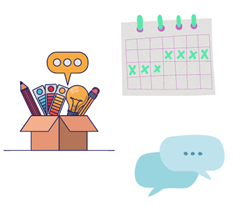
-
"Having a voice of your own", being consistent and listening
According to the interviewees, in order to build a community of followers and be successful as an influencer, a number of skills are required:
- CONSTANCY in content creation.
- CREATIVITY in content and audiovisual techniques. It is essential to develop a "voice of your own".
- LISTEN and interact with supporters.
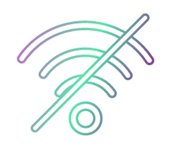
-
Full-time creators feel subordinated to the algorithms of the platforms
Influencers who focus exclusively on online content creation express the pressure to be constantly connected and to continuously upload content. This profile feels less control over their work, they are more aware of the limitations imposed by the platform's algorithm in terms of publication schedules, frequency, type of content, etc. In contrast, those who are engaged in content creation on a part-time basis do not express as much of this pressure to be connected and feel more in control of their work.
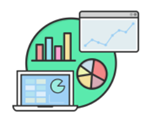
-
Part-time creators place a high value on effort as a key to success
Those influencers who, in addition to creating content, have another type of dedication (studies or work) perceive that they have a lot of control over their work, considering that their success depends fundamentally on the effort they invest in it (hours, market segmentation, content curation).
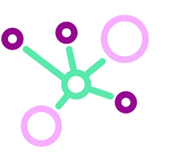
-
Professional networks are more valued by influencers who perceive greater control over their work.
While macro-influencers and, in general, those who make their living exclusively from this work do not consider joining a network of professionals in the sector, nano and micro-influencers are willing to do so.
In the case of the first group, they do not perceive the need to do so. On the other hand, the second group believes that professional networks can help to improve monetisation and working conditions in general, protecting them from precariousness. They also see such networks as a way of sharing good practice among professionals.
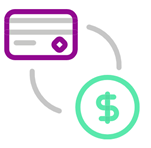
-
Listing and taxation of income earned through platforms is considered too complicated
Although the initial investment in this work is close to zero, as they add followers, diversify or specialise and their revenues increase, costs and expenses increase as well. In addition, the diversity of means of monetisation is also increasing, adding to the complexity of taxation and listing.
-
Influencers are exposed to mental health problems related to online hate speech, stress and self-esteem
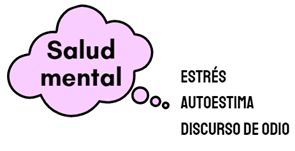
Those who upload personal photos or videos perceive their lives as exposed and their personal identity is largely based on the content they post online. These people tend to suffer from hate speech, discrimination or cyberbullying. People who only upload content related to the results of their work (graphic designers, illustrators, etc.) do not feel as exposed, however, they feel that their value as professionals is very volatile, as it is based on the reaction of their community of followers.
Many respondents report high levels of activation and anxiety, with no recovery time, as they are constantly connected to the networks. As most of them combine content creation with other work/activities or studies, the tasks related to content creation are carried out during breaks from other activities (after dinner, during the weekend, etc.). This combination is the perfect recipe for burnout.
Based on this evidence, the study makes a number of recommendations...
For influencers:
- taking care of mental health (stress, self-esteem, etc.)
- joining professional networks
For digital platforms:
- improving the transparency of algorithms and remuneration policies
- facilitating the control and taxation process
- advising nano and micro influencers
- monitoring cyberbullying cases
For the public administration:
- providing advice on taxation and making it clearer
- monitor compliance with the regulation on algorithmic transparency
- regulating minimum working conditions for content creators
- create a state plan against cyber-bullying
- offer official courses of various kinds for content creators
Executive summary of the report "Being an influencer today".
Full report "Being an influencer today: possibilities and obstacles of a new source of employment".
Access to the website of the Chair of Collaborative Economy and Digital Transformation








